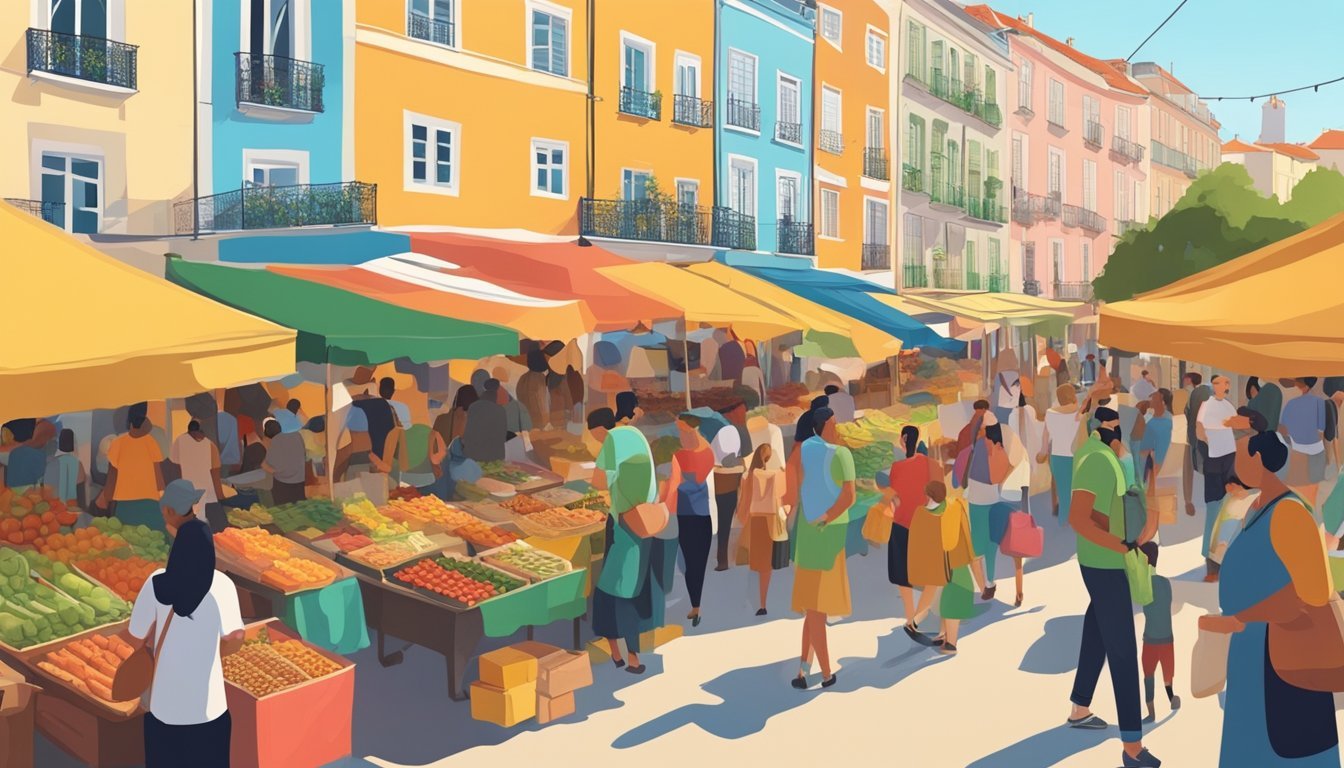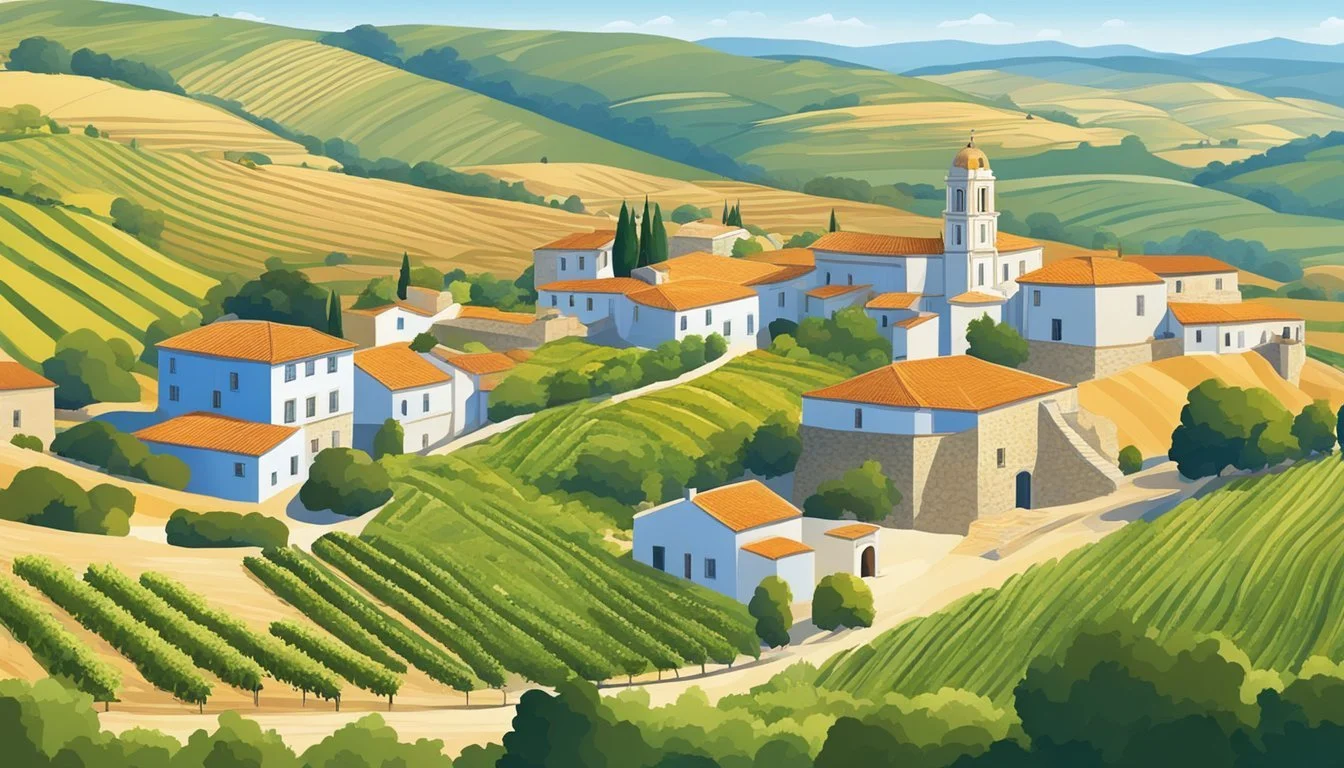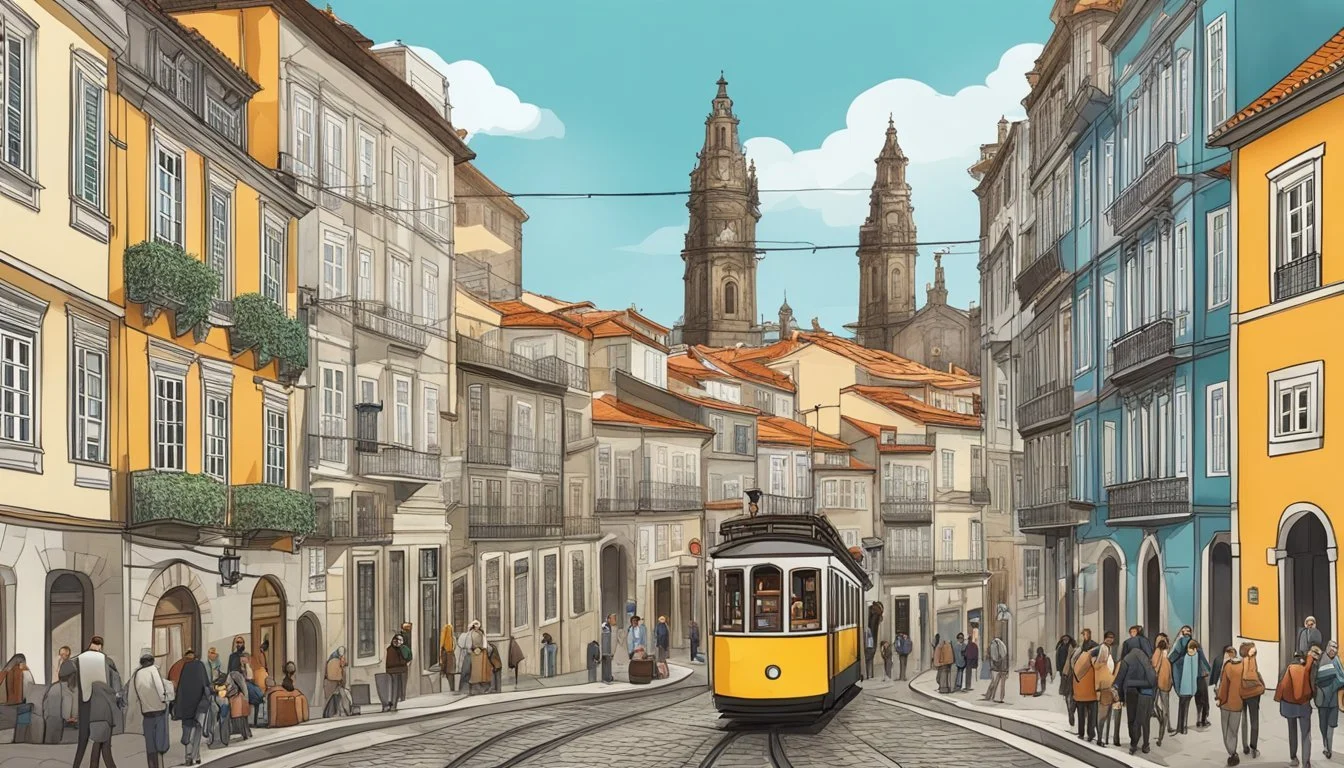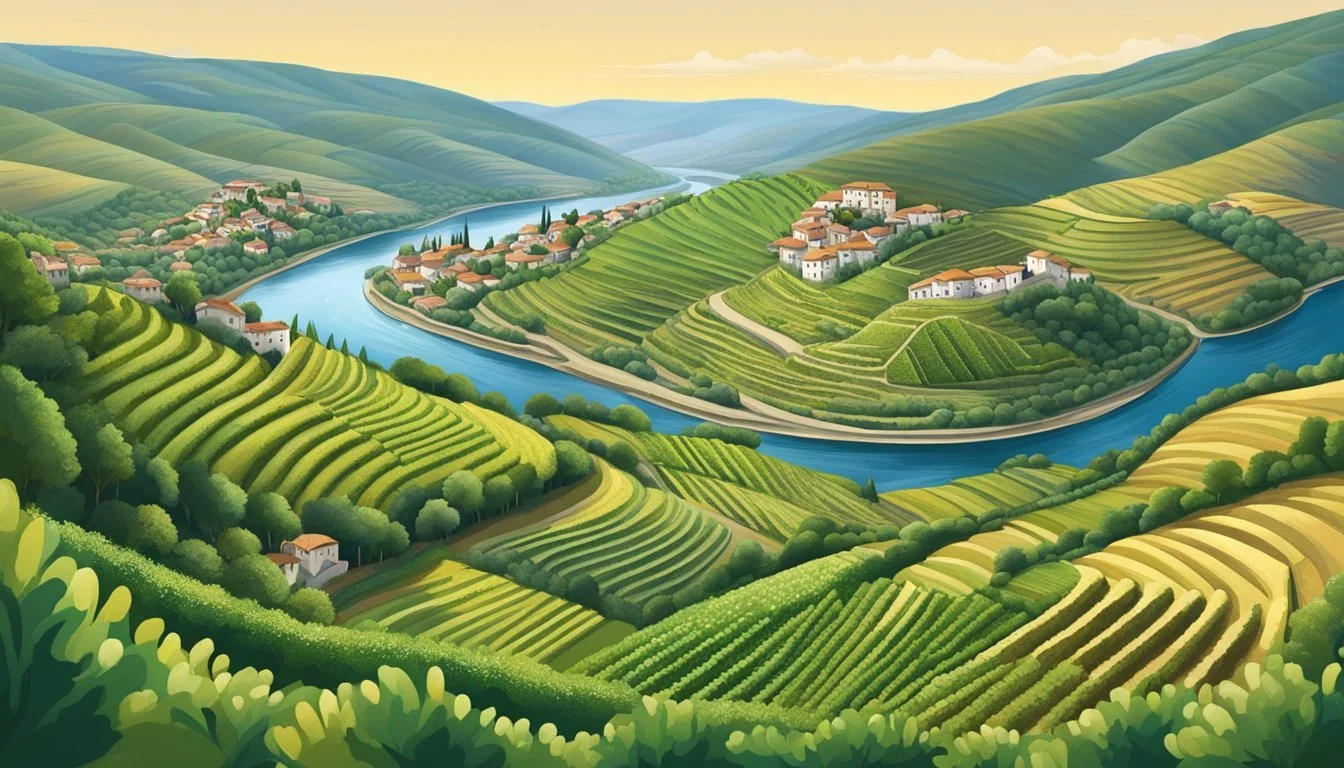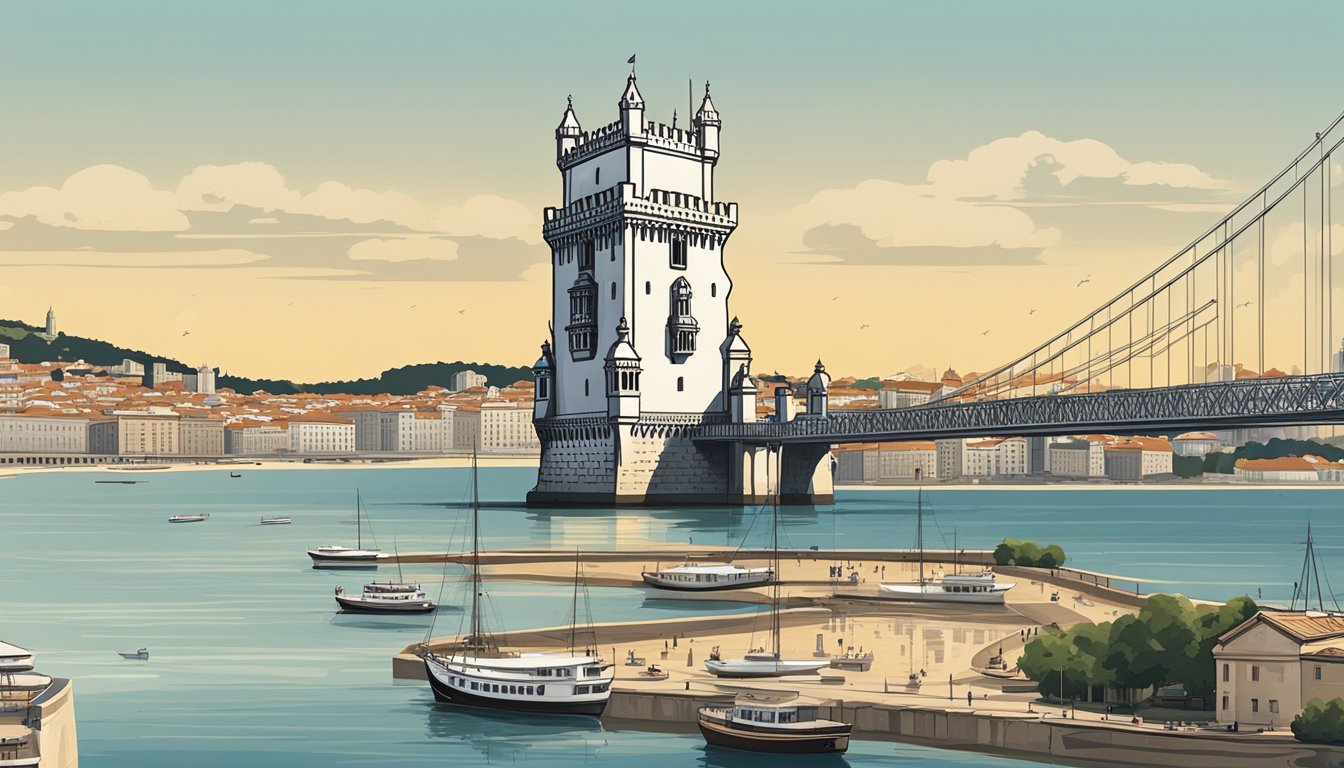9 Must-Watch Documentaries About Portugal
Exploring the Nation's Rich History and Culture
Portugal, a country steeped in history and culture, offers a wealth of captivating stories waiting to be discovered. Documentaries provide an excellent medium to explore the rich tapestry of Portuguese life, from its ancient roots to modern-day challenges and triumphs.
These nine must-watch documentaries about Portugal offer viewers a comprehensive look at the country's diverse landscapes, vibrant traditions, and pivotal historical moments. From the sun-drenched coast of the Algarve to the winding streets of Lisbon, each film provides unique insights into the Portuguese experience. Whether focusing on culinary delights, architectural wonders, or social movements, these documentaries paint a vivid picture of Portugal's past and present.
1) "The Portuguese Way" by João de Almeida
"The Portuguese Way" is a captivating documentary that explores the Camino de Santiago pilgrimage route from Portugal to Spain. Director João de Almeida takes viewers on a journey along this less-traveled path, offering a unique perspective on the pilgrimage experience.
The film showcases the stunning landscapes of northern Portugal and Galicia, from coastal areas to lush countryside. It captures the physical and spiritual aspects of the journey, highlighting the camaraderie among pilgrims and the local hospitality they encounter.
De Almeida's documentary provides insight into the historical and cultural significance of the Portuguese Way. It features interviews with pilgrims, locals, and experts who share their knowledge and experiences.
The film also explores the quieter, more intimate nature of this route compared to the more popular French Way. It emphasizes the Portuguese cultural elements that make this path distinct, including regional cuisine, architecture, and traditions.
"The Portuguese Way" serves as both an informative guide and a source of inspiration for those considering undertaking this pilgrimage. It beautifully captures the essence of the journey, combining breathtaking visuals with personal stories and historical context.
2) "Lisbon Reborn" - Exploring Post-Earthquake Transformation
This documentary examines Lisbon's remarkable recovery following the devastating 1755 earthquake. It chronicles the city's rebirth under the leadership of the Marquis of Pombal, who spearheaded ambitious reconstruction efforts.
The film showcases how Lisbon was rebuilt with improved urban planning and architectural innovations. It highlights the introduction of earthquake-resistant building techniques that became influential across Europe.
Viewers gain insight into the social and economic changes that accompanied Lisbon's physical transformation. The documentary explores how the disaster reshaped Portuguese society, ushering in an era of modernization and reform.
Archival materials and expert interviews provide context on the earthquake's far-reaching impacts. The film examines how the catastrophe influenced Enlightenment thinking and challenged prevailing religious beliefs across Europe.
"Lisbon Reborn" offers a compelling look at a pivotal moment in Portuguese history. It illustrates how the city's response to tragedy laid the groundwork for its emergence as a reinvigorated European capital.
3) "The Azorean Spirit" - Life in Portugal's Islands
"The Azorean Spirit" offers a captivating glimpse into life on the Azores, Portugal's remote archipelago in the Atlantic Ocean. This documentary showcases the unique culture and traditions of the islands' inhabitants.
Viewers are treated to stunning visuals of the Azores' dramatic landscapes, from volcanic peaks to lush green valleys and pristine coastlines. The film explores how these natural features have shaped the islanders' way of life over generations.
The documentary delves into the Azorean people's strong connection to the sea, highlighting their fishing traditions and maritime heritage. It also examines the islands' agricultural practices, including their famous dairy and wine industries.
"The Azorean Spirit" captures the vibrant festivals and religious celebrations that are central to Azorean culture. These events demonstrate the islanders' deep-rooted faith and sense of community.
The film also addresses the challenges faced by Azoreans, such as economic difficulties and the impact of emigration on local communities. It presents a balanced view of life on the islands, acknowledging both its beauty and its hardships.
4) "Porto Through Time" - A Historical Journey
This documentary takes viewers on a captivating tour through Porto's rich history. The film explores the city's transformation from ancient Roman settlement to modern metropolis.
Viewers witness Porto's evolution through expertly restored archival footage and photographs. Key historical events and architectural developments are highlighted, showcasing the city's resilience and cultural significance.
The documentary delves into Porto's maritime heritage and its crucial role in Portugal's Age of Discovery. It examines the city's famous port wine industry and its impact on local economy and culture.
Porto's iconic landmarks, including the Dom Luís I Bridge and São Bento Station, are featured prominently. The film also sheds light on lesser-known historical sites and hidden gems throughout the city.
Interviews with historians and long-time residents provide personal insights into Porto's past. These firsthand accounts bring the city's history to life, offering viewers a deeper understanding of its cultural fabric.
"Porto Through Time" offers a comprehensive look at the city's evolution, from its ancient roots to its present-day status as a UNESCO World Heritage site. This documentary serves as an essential guide for anyone interested in Porto's fascinating history.
5) "The Art of Fado" - Portugal's Soulful Music
Fado is a quintessential Portuguese music genre that captures the nation's soul. This documentary explores the rich history and cultural significance of fado, tracing its origins and evolution.
Viewers are introduced to renowned fadistas who share their passion for this emotive art form. The film showcases captivating performances that demonstrate fado's characteristic melancholy and longing.
Interviews with musicians and experts provide insights into fado's musical structure and lyrical themes. The documentary highlights how the genre often incorporates references to the sea and Portuguese maritime history.
The film also examines fado's role in contemporary Portuguese society. It showcases both professional and amateur artists who dedicate themselves to preserving and evolving this traditional music.
Viewers gain an appreciation for the intricate artistry behind fado performances. The documentary illustrates how singers and musicians work together to create the genre's distinctive emotional resonance.
Through stunning visuals and intimate portraits, "The Art of Fado" offers a comprehensive look at this important aspect of Portuguese cultural heritage.
6) "Wine Trails of the Douro Valley"
"Wine Trails of the Douro Valley" showcases Portugal's oldest demarcated wine region. The documentary explores the picturesque landscapes and rich winemaking traditions of the Douro Valley.
Viewers are taken on a journey through terraced vineyards that have produced world-renowned Port wine for centuries. The film highlights the unique microclimate and soil conditions that contribute to the region's exceptional wines.
Interviews with local winemakers provide insights into traditional and modern production methods. The documentary also features tastings of various Douro wines, including the famous Port and robust reds.
The film captures the beauty of the Douro River and surrounding hills, showcasing the region's stunning natural scenery. It also explores the cultural heritage of the area, including historic quintas (wine estates) and charming villages.
"Wine Trails of the Douro Valley" offers a comprehensive look at the region's viticulture, from grape cultivation to the final product. It provides an engaging introduction to one of Portugal's most celebrated wine regions.
7) "Sardine Stories" - Portugal's Fishing Heritage
"Sardine Stories" explores Portugal's deep-rooted connection to sardine fishing. This documentary showcases the importance of sardines in Portuguese culture and economy.
The film takes viewers on a journey along Portugal's coastline, highlighting traditional fishing methods that have been passed down through generations. It features interviews with local fishermen who share their experiences and challenges.
Sardines play a crucial role in Portuguese cuisine, especially during popular summer festivals. The documentary delves into these celebrations, showing how sardines are grilled and enjoyed by locals and tourists alike.
The film also addresses the environmental concerns facing the sardine industry. It examines efforts to maintain sustainable fishing practices and preserve Portugal's marine ecosystems.
"Sardine Stories" provides insight into the economic impact of sardine fishing on coastal communities. It illustrates how this industry has shaped the livelihoods of many Portuguese families over the years.
Through stunning visuals and compelling narratives, the documentary captures the essence of Portugal's sardine fishing heritage. It serves as a tribute to this integral part of Portuguese culture and history.
8) "Architecture of Lisbon" - Past Meets Present
"Architecture of Lisbon" showcases the city's diverse architectural heritage spanning centuries. The documentary explores how Lisbon's buildings reflect its rich history and cultural influences.
Viewers are taken on a visual journey through Lisbon's iconic structures, from ancient Roman ruins to Gothic cathedrals and Baroque palaces. The film highlights the city's famous Manueline style, exemplified by the Jerónimos Monastery and Belém Tower.
The documentary examines Lisbon's post-1755 earthquake reconstruction, which introduced the innovative Pombaline style. This earthquake-resistant architecture shaped much of the city's downtown area.
Modern Lisbon's architectural landscape is also featured, showcasing contemporary designs that blend seamlessly with historical elements. The film explores how architects today are preserving Lisbon's heritage while creating innovative spaces for the future.
Through interviews with architects, historians, and residents, the documentary provides insights into how Lisbon's architecture shapes daily life and urban identity. It captures the city's unique ability to harmonize different architectural periods within its urban fabric.
9) "The Age of Kings" - Portugal's Maritime History
"The Age of Kings" chronicles Portugal's golden era of exploration and maritime dominance. This documentary transports viewers to the 15th and 16th centuries, when Portuguese monarchs launched ambitious voyages of discovery.
The film highlights key figures like Prince Henry the Navigator, who established a naval school and promoted maritime expeditions. It explores the voyages of explorers such as Vasco da Gama, who discovered the sea route to India.
Viewers learn about the technological innovations that enabled long-distance sea travel, including advancements in shipbuilding and navigation. The documentary examines Portugal's establishment of trading posts and colonies across Africa, Asia, and South America.
"The Age of Kings" also delves into the economic and cultural impacts of Portugal's maritime empire. It discusses the influx of wealth from spice trade and the exchange of knowledge between civilizations.
The film provides insights into daily life aboard Portuguese ships and in newly established outposts. It uses historical reenactments and expert interviews to bring this pivotal period of history to life.
The Impact of Portuguese Culture in Global Documentaries
Portuguese culture has left an indelible mark on global documentaries. Filmmakers worldwide have been drawn to Portugal's rich history and unique musical traditions, creating compelling narratives that resonate with international audiences.
Exploring Portuguese History
Documentaries about Portugal often focus on pivotal historical events. The Carnation Revolution of 1974 features prominently, with films like "April Captains" dramatizing this peaceful uprising that ended decades of dictatorship. These works provide insight into Portugal's transition to democracy and its lasting effects on society.
Many documentaries explore Portugal's maritime heritage and colonial past. They examine the country's role in global exploration during the Age of Discovery, highlighting figures like Vasco da Gama and Ferdinand Magellan. These films offer a nuanced look at Portugal's historical influence on world trade and cultural exchange.
Influence of Fado in Cinema
Fado, Portugal's soulful traditional music, has captured the attention of international filmmakers. Documentaries showcasing fado singers and their emotional performances have introduced this unique genre to global audiences. These films often explore fado's origins in Lisbon's working-class neighborhoods and its evolution into a symbol of Portuguese identity.
Notable documentaries have profiled legendary fado artists like Amália Rodrigues and Mariza. They delve into the music's themes of longing, fate, and nostalgia, providing context for fado's cultural significance. Through these films, viewers gain a deeper appreciation for Portugal's musical heritage and its impact on world music.
Cinematic Techniques Used in Documentaries About Portugal
Portuguese documentaries employ distinctive visual approaches to capture the country's essence. Filmmakers utilize landscape cinematography and storytelling techniques to create compelling narratives.
Utilization of Landscape Cinematography
Documentaries about Portugal often showcase stunning wide shots of coastal cliffs, rolling vineyards, and historic cities. Aerial footage provides sweeping views of the Douro Valley or Lisbon's colorful neighborhoods. Time-lapse photography captures the changing light over iconic landmarks like the Belém Tower.
Filmmakers use natural lighting to enhance Portugal's golden hues during magic hour. Close-up shots highlight intricate tile work and architectural details. Handheld camera work creates an intimate feel when following local artisans or fishermen.
Narrative and Storytelling Approaches
Portuguese documentaries frequently employ a mix of observational and participatory styles. Directors may include themselves as narrators or on-screen guides. Interviews with locals are interwoven with historical reenactments to provide context.
Archive footage and old photographs are skillfully incorporated to illustrate Portugal's rich past. Some films use poetic voiceovers in Portuguese with English subtitles for authenticity. Montage sequences set to fado music evoke nostalgia and cultural pride.
Filmmakers often structure narratives around journeys, following pilgrimage routes or exploring regional differences. Personal stories of immigrants or returning expats add emotional depth to broader cultural explorations.

